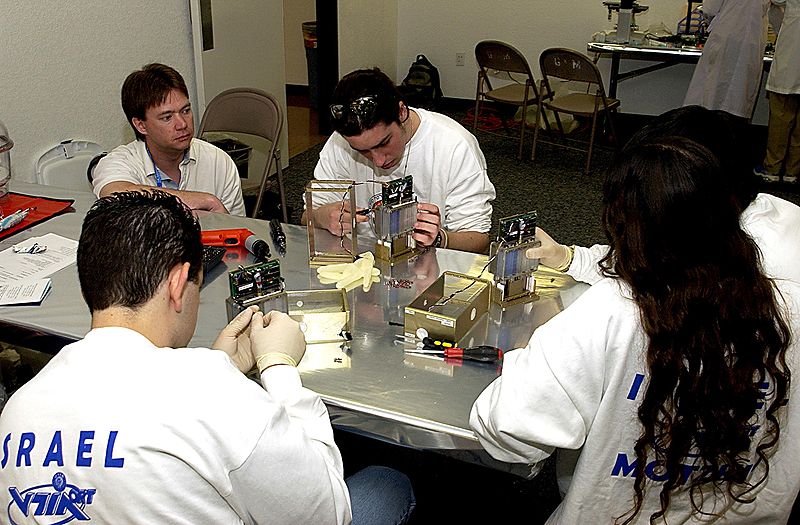 Last weekend, I was fortunate to be at the same dinner party as Jeff Puryear, co-director of PREAL and a luminary in the education field. We got talking about his PhD thesis from 1977, which I later found out, was perhaps the first serious study of the impact of job training in Colombia's SENA industrial training programs in Bogotá.
Last weekend, I was fortunate to be at the same dinner party as Jeff Puryear, co-director of PREAL and a luminary in the education field. We got talking about his PhD thesis from 1977, which I later found out, was perhaps the first serious study of the impact of job training in Colombia's SENA industrial training programs in Bogotá.
First, to analyze the socioeconomic characteristics of people who enrolled with SENA relative to those who did not, with a view to identifying the kind of candidates that the programs attracted; second, to estimate the impact of SENA training on the wages of a randomly-chosen individual who had undergone no training before taking part in a SENA program; and third, to calculate the private and social benefits of the SENA program.
When I did some googling, and spoke with my manager, Robin Horn, I found out that a number of very senior education economists in the Bank also looked at vocational education and the school-to-work transition as topics for their doctoral dissertations. In my unit, (the Education Department of the Human Development Network), we have been talking a lot about the re-emergence of vocational education. Apparently, it had been in the background for the past decade. Many in the Bank are welcoming the renewed attention that technical and vocational education training systems are receiving.
Stepping Up Skills for More Jobs and Higher Productivity
One of the newest and most interesting reads on vocational education is found in chapter 3, Building Job-Relevant Skills within a recent Bank publication - Stepping Up Skills for More Jobs and Higher Productivity (STEP) authored by many esteemed people, whose work, I have always admired. It is one of the most reader-friendly, policy-focused papers I have come across. It rivals the client-centric tone of McKinsey's June 2009 paper, Changing the Fortunes of America’s Workforce: A Human Capital Challenge. The recently appointed Vice President to the Bank’s Human Development Network, Tamar Manuelyan Atinc explains in the preface that STEP provides:
A simple yet comprehensive way to look at skills development. It brings together research evidence and practical experience from a range of areas—from research on the determinants of early childhood development and learning outcomes, to policy experience with the reform of vocational and technical education systems and labor markets—and provides a set of powerful messages to policymakers, researchers, and practitioners.
So How Should Countries Organize Vocational Education? – Harry Patrinos et al on Poland
Harry Patrinos, a Lead Education Economist at the Bank, and co-authors, looked at the Polish Government’s reform in technical vocational education to increase flexibility for students so that technical streaming was delayed by a year. Poland restructured its 8-year primary school system that was followed by early vocational tracking to a 9-year comprehensive structure, to allow for the one year delay in tracking. This rigorous evaluation shows that would-be vocational school students improved their learning outcomes by almost a standard deviation, leading to a significant overall improvement. In fact, Poland went from below the OECD average in 2000, to 8th place overall in the world in PISA reading, largely as a result.
The United States is also Reviewing its Vocational Education
Just like, Poland, the US is pondering this very question. An article which appeared in a late June edition of the Economist, explained that the National Governors Association (a bipartisan organization of US governors—which has as its mandate to promote best practices and speak with a unified voice on national policy), proposed standards to make students "college and career ready." They are part of a growing chorus to promote vocational education. However the same article rightly reports that Americans “hate the idea of [..] schoolchildren setting out on career paths – such predetermination [..] threatens the ethos of opportunity."
Our Education Sector Strategy 2020 Looks to Vocational Education
The Concept Note that was used as a basis for developing the Strategy states:
Basic competencies such as reading and math skills, as well as communication, teamwork, and problem-solving skills are all necessary for people to function well at home, in their communities and at work. In addition, specific technical skills related to an occupation are valued in the labor market. And as markets and technologies change, the ability to adapt to those changes is vitally important.
I am eager to learn how the Strategy will approach vocational education, as the team gears up to post the draft next month online, which will be open for feedback. I hope that the forerunner -- and my newly acquired dining friend, Jeff Puryear will provide his thoughts.
Photo credits - The image ("Students themselves stepping it up") comes from Wikipedia Commons.


Join the Conversation